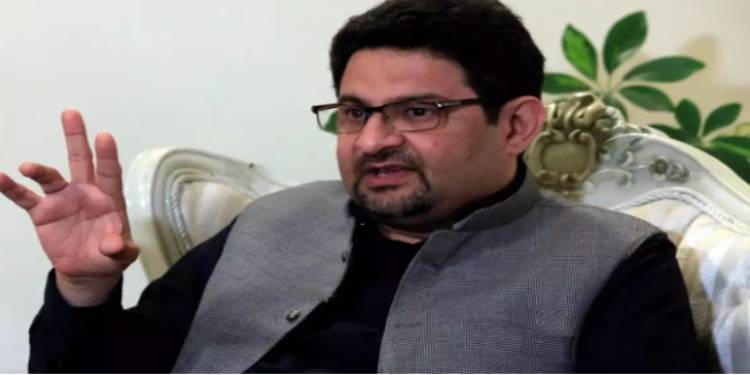
Pakistan Muslim League Nawaz (PMLN) leader and former finance minister Miftah Ismail has accused Finance Minister Ishaq Dar of disrupting the agreement with the International Monetary Fund (IMF) and said that the international lender was unwilling to grant money to Pakistan because the IMF had lost faith in the government.
Miftah expressed these views while speaking at a session titled "Pakistan in the Middle of Crisis," which was organized by a private university in Karachi. He claimed that when he was in charge of the Ministry of Finance, he had spoken to IMF officials and given them assurances that Pakistan would not make false statements or violate the agreement; however, after Ishaq Dar took office, "he sabotaged the agreement."
He recalled that Pakistan had broken its sovereign promises three times before. He emphasized that the IMF did not trust the Islamabad government and added, "Today, the IMF is not interested in delivering money to Pakistan."
Pakistan keeps courting the IMF in an effort to obtain a much-needed bailout from the international lender. Now that Sri Lanka has obtained financing from the multilateral lender and Bangladesh is continuing to implement IMF-mandated reforms, Pakistan is the only South Asian nation that has not yet received assistance from the lender.
To restart a $6.5 billion IMF loan package, Pakistan has adopted difficult measures like raising taxes and energy costs and allowing its currency to depreciate. The money will provide some solace to a country still suffering from a dollar shortage that has increased the risk of the economy contracting before this year's elections.
Miftah stated that he didn't think the government's Sunday announcement of a petrol relief subsidy would be successful. "By accepting loans, we provide subsidies on gasoline," he remarked.
He cautioned that if Pakistan defaulted, it would have serious repercussions for the nation since the wealthiest would bore the burden of it while the poor would struggle to survive.
Miftah expressed these views while speaking at a session titled "Pakistan in the Middle of Crisis," which was organized by a private university in Karachi. He claimed that when he was in charge of the Ministry of Finance, he had spoken to IMF officials and given them assurances that Pakistan would not make false statements or violate the agreement; however, after Ishaq Dar took office, "he sabotaged the agreement."
He recalled that Pakistan had broken its sovereign promises three times before. He emphasized that the IMF did not trust the Islamabad government and added, "Today, the IMF is not interested in delivering money to Pakistan."
Pakistan keeps courting the IMF in an effort to obtain a much-needed bailout from the international lender. Now that Sri Lanka has obtained financing from the multilateral lender and Bangladesh is continuing to implement IMF-mandated reforms, Pakistan is the only South Asian nation that has not yet received assistance from the lender.
To restart a $6.5 billion IMF loan package, Pakistan has adopted difficult measures like raising taxes and energy costs and allowing its currency to depreciate. The money will provide some solace to a country still suffering from a dollar shortage that has increased the risk of the economy contracting before this year's elections.
Miftah stated that he didn't think the government's Sunday announcement of a petrol relief subsidy would be successful. "By accepting loans, we provide subsidies on gasoline," he remarked.
He cautioned that if Pakistan defaulted, it would have serious repercussions for the nation since the wealthiest would bore the burden of it while the poor would struggle to survive.

